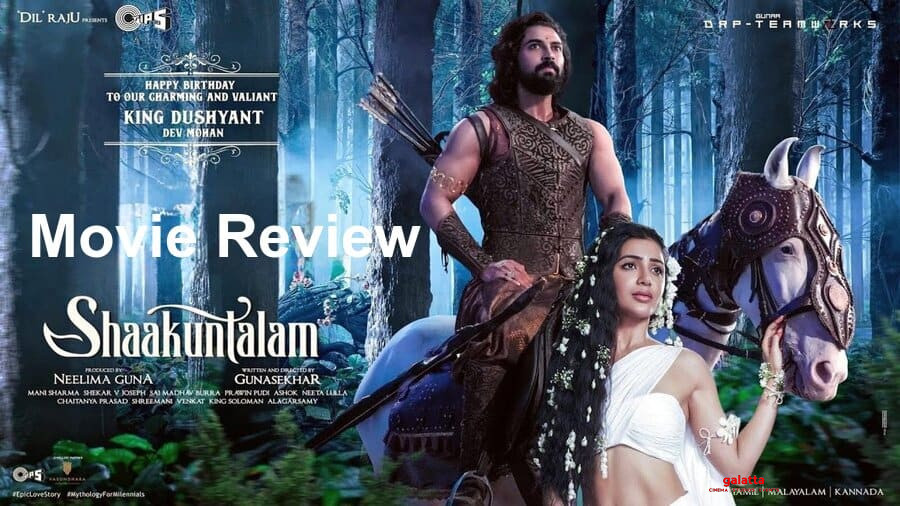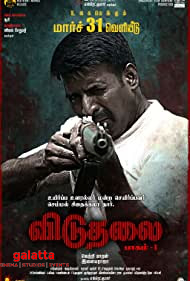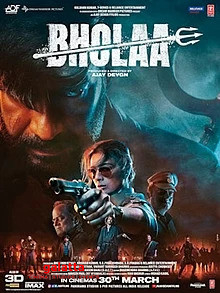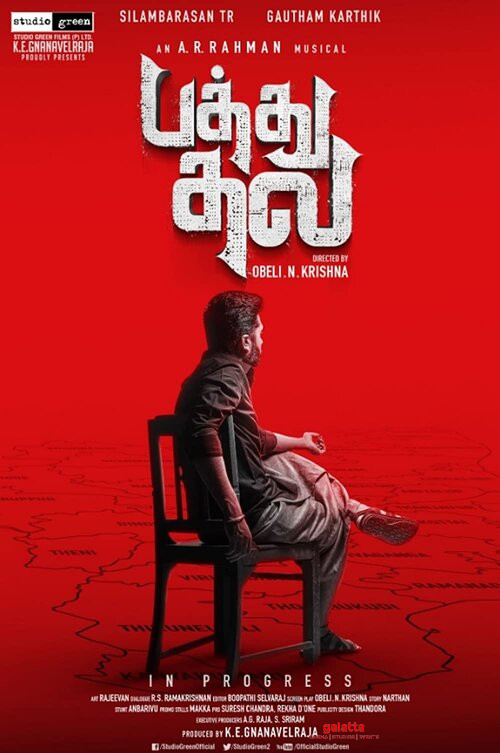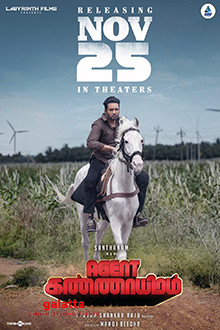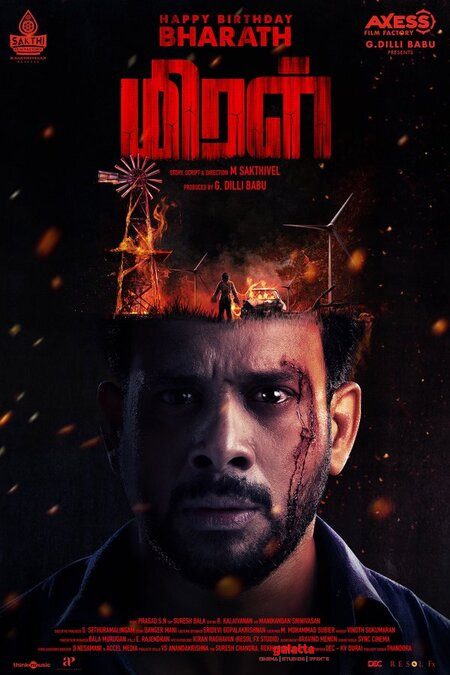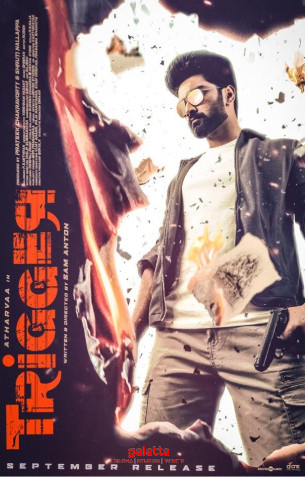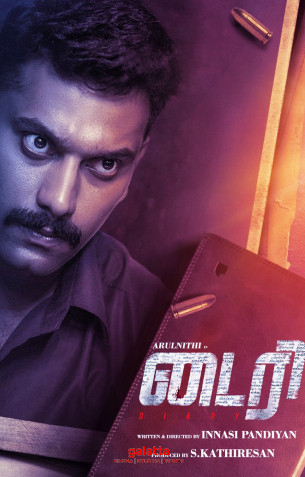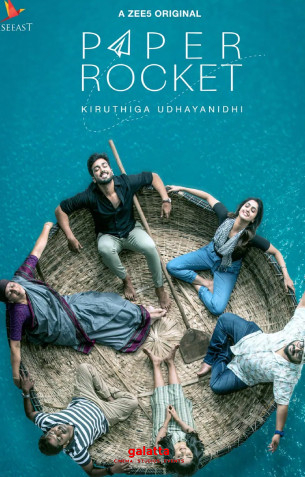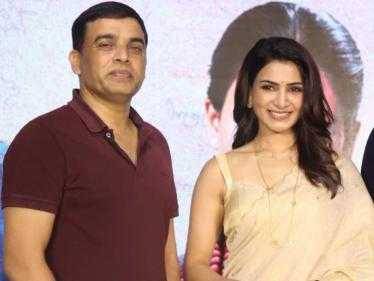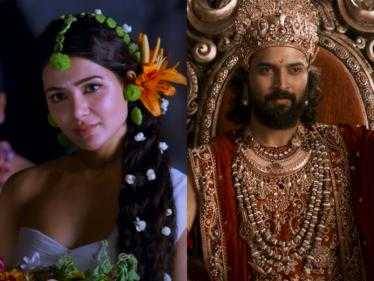Shaakuntalam Movie Cast & Crew
Gunasekhar's Shaakuntalam, based on the Kalidasa play, has been marketed as #MythologyFor Millennials. So as a thought experiment, let's drag this classic to the modern day. A beautiful woman falls for a handsome dude. He makes vows of marriage, they have sex, and he says he'll be back for her. She pines for him, but he has a bout of amnesia and forgets her - until he remembers her again. They live happily ever after. On the surface, this is a story you are going to laugh off, but what made it work was the literary form, the poetic richness in Kalidasa's writing. So to crack this on screen, you need a cinematic vision, something like what V Shantaram had when he made this story into Stree, in the 1960s. (He made an earlier version, too, but I have not seen it.) You need to expand a thin, borderline-ridiculous tale into a spectacle that fills the eyes and also the heart and mind.
Gunasekhar's film – in 3D, shot by Sekhar V Joseph – is content to aim for visual grandeur. The first time we see Shakuntala (Samantha Ruth Prabhu), she's shrouded by a cloud of butterflies. Later, there's a huge war scene with Dushyanta (Dev Mohan). Meanwhile, there's an elephant-taming moment – and so on, so forth. But there's no emotional grandeur. About this director's last film, Rudhramadevi, I said, "[The heroine] is imposing, regal. But she has nothing to play. The character is all externalities. There’s no inner life to portray. Everything is conveyed through dialogue, and it’s purely functional – there’s no music in the words." Ditto, here. Samantha has a lovely,fragile screen presence, but oddly, Shakuntala seems to register the least in her own story. All the big moments go to the others. I don't know what millennials are going to make of such a meek protagonist, who has zero agency.
Yes, "agency" is a word of this millennium, and it was not in vogue when these works were written. But that's why you need to reinterpret at least some of the text. I am not asking for Shakuntala to be a feminist. Just give her something to do that's her own, something that defines her – even if it is something as simple like pouring her thoughts out to a deer or peacock or some such thing. Otherwise, she is just the acted-upon – a passive creature whose every move is decided by the men around her, from kings to sages. You may argue that women were passive those days: look at poor Draupadi, who agreed (or had to agree) to be the wife of five brothers. But then, passivity in a protagonist is a drag on screen. The film does just that. It drags.
The screenplay is content to plod along from one plot point to the next – and it's wobbly. A bunch of asura-s come and go as they please instead of being woven into the story as a constant threat. Mani Sharma's songs are quite good, but the song sequences are picturised without any imagination and you keep reaching for an imaginary fast-forward button. But what hurts Shaakuntalam the most is the fact that the central love story does not make you feel anything – so everything that arises from it passes by without much impact. Those looking for an easy-watch spectacle may not mind. The creature effects are not bad, and there is a sense of bigness. But those looking for an emotionally affecting tale of a woman who suffers for no fault of hers may end up wishing for a Bhansali version of Kalidasa's epic.
